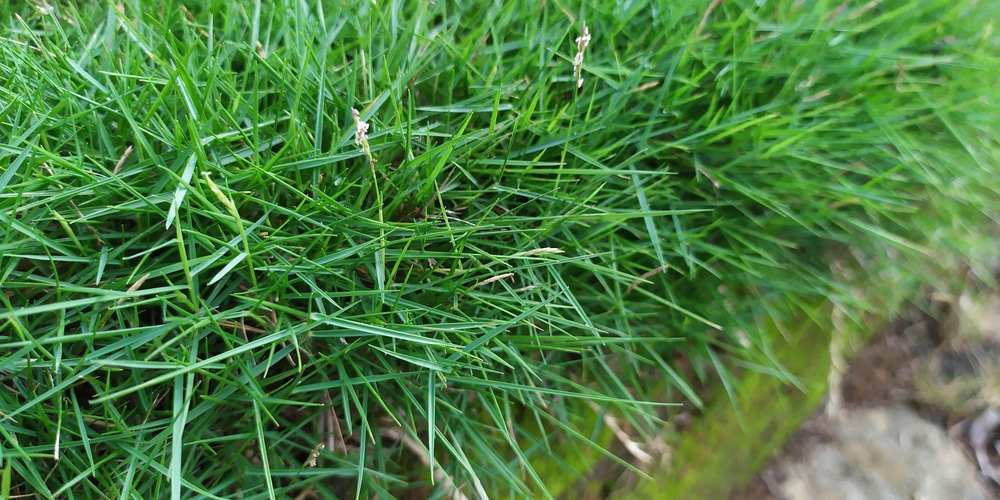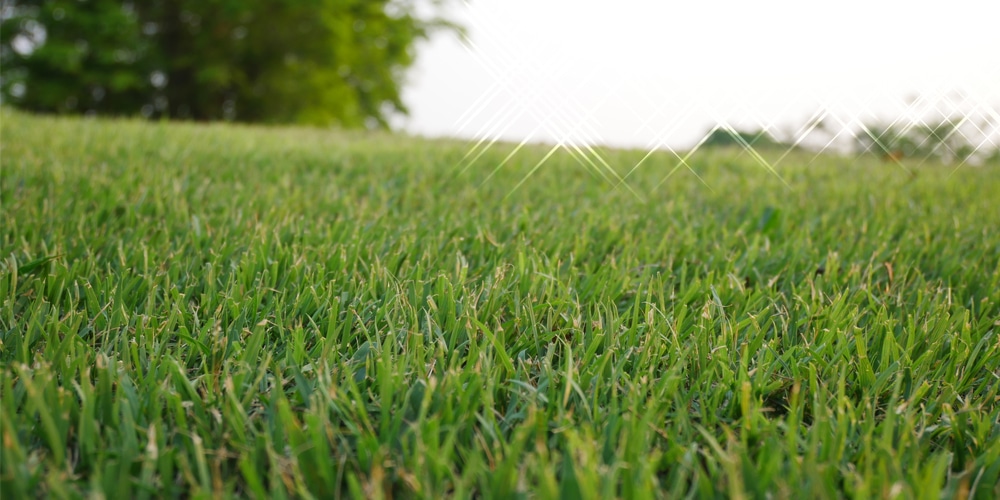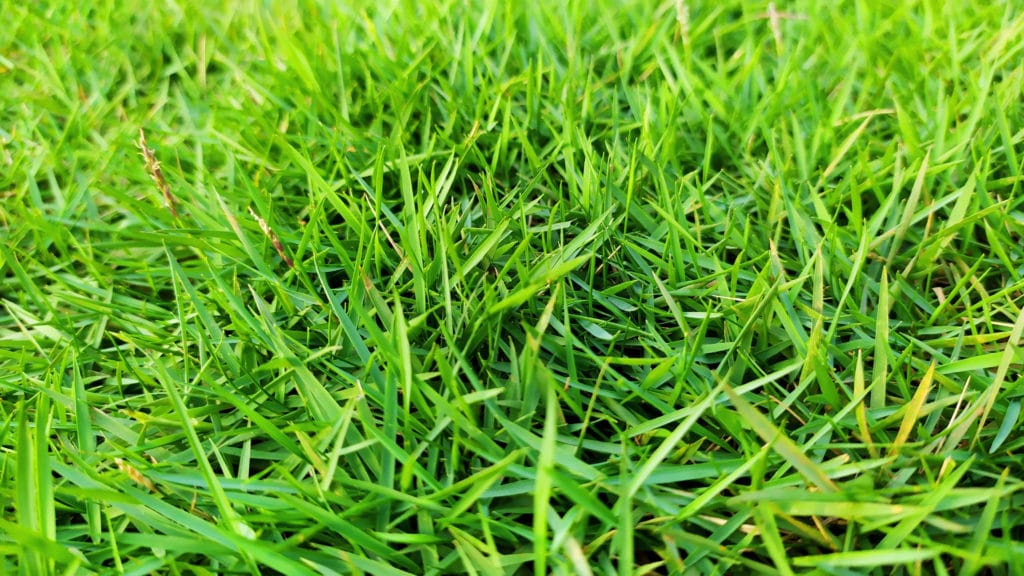Let’s compare these two popular types of grass: zoysia vs Bermuda grass. We’ll look at the benefits and disadvantages of each and the differences and similarities to help you choose which is best for your lawn.
When choosing which type of grass to grow in your yard, there are many things to consider. Bermuda is a popular choice as it’s very hardy and is heat and drought-resistant. Zoysia produces a lovely thick lawn and can grow well in low light, so it is perfect for a yard that gets a lot of shade.
Zoysia vs Bermuda Grass


Zoysia and Bermuda are both warm-season varieties of grass that grow well throughout the spring and summer months. In the winter, they will become dormant. Both these types of grass have similar care needs, and they both do well in certain areas.
Bermuda is considered very hard wearing and can cope with a lot of traffic. For this reason, it’s commonly used on golf courses.
On the other hand, Zoysia is an excellent choice for families with young children as it’s thick, low maintenance, and can cope with children and pets running around.
What is Zoysia?

Zoysia is a perennial grass that grows thick, dense, and healthily. It’s used to produce beautiful laws and is perfect for areas with high traffic. This variety is low maintenance and, like Bermuda, is fairly drought resistant. You won’t need to water your lawn much if you choose zoysia.
Zoysia can be grown in various light levels. It can cope with full sun and is relatively heat resistant. It can also handle partial shade. Zoysia’s is also resistant to weeds as it’s so thick and dense that it will crowd weeds out. It doesn’t generally suffer from disease or pests that can affect other varieties of grass.
What is Bermuda Grass?

Bermuda grass is very hardy and can cope with high levels of traffic. It’s commonly grown on sports fields, golf courses, school playgrounds, and parks. When bermudagrass gets damaged, it’s able to grow back as it can spread sideways quickly.
Bermudagrass is a deep green color that looks and feels great. It’s very heat resistant and can cope with hot weather. This grass originates from tropical areas, which makes it drought tolerant. It also thrives in a variety of soil types.
Zoysia vs Bermuda Grass Comparison

To help you chose which type of grass is best for your lawn, we’ve compared Bermuda and Zoysia side by side.
Climate
Zoysia and Bermuda grasses are both fairly heat and drought resistant. While Bermuda can cope with the heat, it doesn’t like colder weather and will suffer if there’s frost on the ground. If there are a few colder days, Bermuda grass will quickly turn yellow. You may need to overseed your lawn in the fall to stop it from looking patchy. Zoysia, on the other hand, is hardy and can cope with the cold, although it is a warm-season grass and will also become dormant in the winter.
If you want a green lawn year-round, you may like to plant a seed mix that contains both warm and cool-season grasses.
Care
Both Bermuda and Zoysia are considered low-maintenance varieties of grass. If you’re looking for a very low maintenance grass, you may like to choose zoysia, which doesn’t need much care at all. If you water your zoysia grass every now and again, it will thrive.
Bermuda grass requires slightly more attention. You should frequently water a Bermuda lawn to keep it green. It’s also a good idea to mow your lawn at least once a week.
Growth
Bermuda is an invasive species that can spread. The grass can take over and spread into flower beds or over the edges of paths. It needs more maintenance to stop it from spreading. Zoysia is slower growing and doesn’t spread. Once you’ve planted your lawn, it will look great and have a carpet-like look. It won’t spread into flower beds or need cutting back.
Disease
Zoysia is thick, which makes it pest, weed, and disease resistant. Bermuda also remains quite healthy but is more likely to suffer from fungal infections such as brown spots.
Conclusion
Bermuda and Zoysia are both warm-season grasses that are popular across the states. They are hardy and look great. These grasses both go dormant and turn brown in the winter. Zoysia is lower maintenance than Bermuda as the latter needs more frequent watering, mowing and it can also become invasive.
Related: Zoysia vs Fescue.